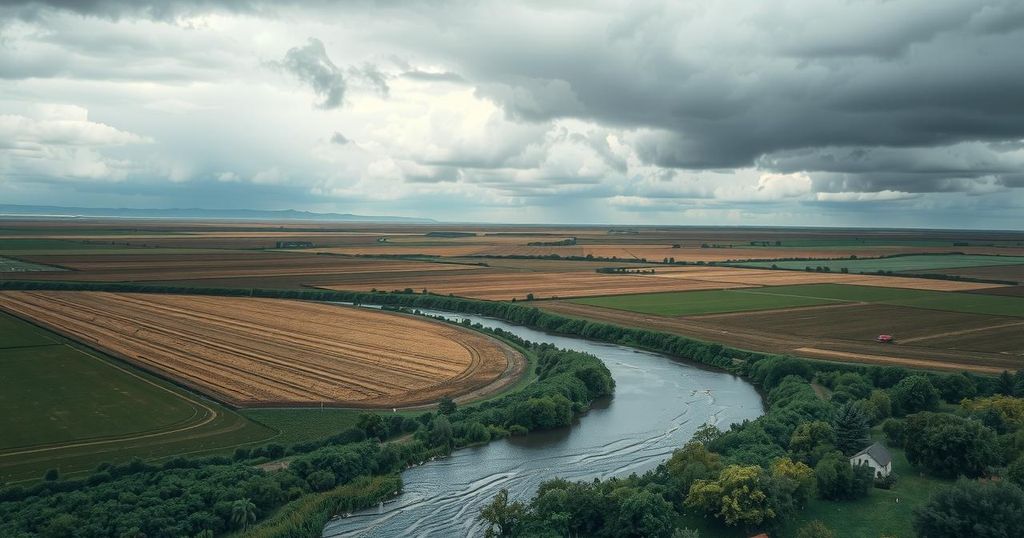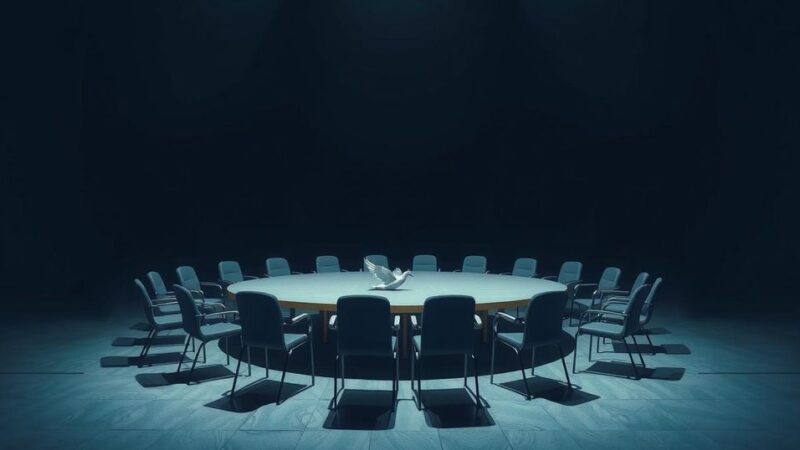In the eastern Democratic Republic of the Congo, clashes between the army and M23 rebels have displaced over 400,000 people this year. The UN has warned of a humanitarian crisis and a potential regional conflict. Ongoing military responses by Congolese forces aim to confront the M23, while diplomatic efforts for peace remain stalled.
Recent violent clashes between the Democratic Republic of Congo (DRC) army and M23 rebel forces have exacerbated the humanitarian crisis in the eastern region of the country. According to the United Nations, over 400,000 individuals have been displaced this year alone, prompting fears of a potential regional conflict. The escalating violence has primarily impacted the provincial capital, Goma, which is home to approximately one million residents.
Matthew Saltmarsh, a representative from the UN refugee agency (UNHCR), shared alarming statistics regarding displacement, noting a near doubling of people affected since the previous week. United Nations Secretary-General Antonio Guterres expressed grave concern about the resumption of hostilities and its dire consequences on the civilian populace. He has called for an immediate cessation of violence to prevent widespread suffering and instability.
On the frontlines, fighting intensified early Friday, particularly close to Goma. A security source reported heavy exchanges of gunfire along the Kanyamahoro-Kibumba route. The M23 group’s presence in nearby towns, such as Sake, has further complicated the situation, leading to significant military responses from the Congolese forces. Helicopter strikes aimed at M23 positions were conducted as the army attempts to push back against the advancing rebels.
Following the recent spike in violence, Congolese President Felix Tshisekedi is convening a defense council meeting to address the escalating conflict. Military and UN sources confirmed the death of General Peter Cirimwami, the military governor of North Kivu, highlighting the grave toll on military leadership. The Congolese army has deployed resources, including armored personnel carriers, to confront the M23 in an effort to protect the civilian population.
Civilians have begun evacuating the conflict zones, seeking safety in Goma as hundreds are being treated for injuries sustained during the recent confrontations. Goma has long been at the center of violence in eastern DRC, with the M23 previously occupying the city in 2012. Despite ongoing diplomatic efforts to resolve the conflict, a resolution remains elusive.
A planned meeting between President Tshisekedi and Rwandan President Paul Kagame, aimed at addressing the conflict through peace talks, was recently canceled due to disagreements. Meanwhile, Turkey has offered to mediate the situation, signaling a continued interest in resolving the DRC-Rwanda conflict. However, past ceasefires have repeatedly fallen through, casting doubt on the prospects for lasting peace in the region.
The Democratic Republic of the Congo has faced protracted instability and violence, particularly in its eastern regions, exacerbated by the presence of various rebel groups such as M23. This instability has resulted in a severe humanitarian crisis, with large numbers of people displaced each year. The international community, including the United Nations, has been actively involved in attempts to mediate peace and address the humanitarian needs arising from ongoing conflicts in the area.
The renewed conflict in the DRC’s East has led to significant displacement, with over 400,000 individuals forced to flee their homes this year alone. The humanitarian situation is dire, prompting calls from the UN for a halt to violence. With diplomatic talks stalled and military action intensifying, the potential for a broader regional conflict looms, underscoring the urgent need for effective mediation and resolution efforts.
Original Source: www.barrons.com






